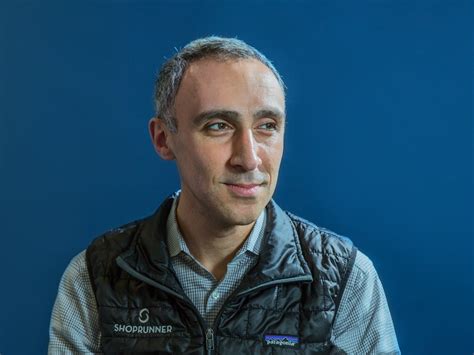A Quote by Simon Mainwaring
And if you look at the reality in the United States, where you have more than 40 million people below the poverty line and 42 million on food stamps, and then you look at poverty around the world, clearly the way we're running the engine of capitalism is not serving us well.
Related Quotes
We draw many benefits from globalization that people take for granted. Poverty has been reduced massively around the world. If you look at the Chinese numbers, it is quite mind-boggling: 700 million people taken out of poverty in a matter of 40 years, the poverty rate having moved from over 30 per cent from hardly six per cent now. That would not have happened if there had not been globalization.
The Black public sector middle class teachers, policeman, firemen, and post office workers, those jobs have been on the decline but there hasn't been a corresponding increase in the private sector. What is especially painful is government policy bailed out the banks without making them make reinvestments for rebuilding. The result is 53-million Americans are food insecure, 50-million Americans are in poverty, 44 million are on food stamps, 26 million are looking for a job.
It is obviously easier, for the short run, to draw cheap labor from adjacent pools of poverty...than to find it among one's own people. And to the millions of such prospective immigrants from poverty to prosperity, there is, rightly or wrongly, no place that looks more attractive than the United States. Given its head, and subject to no restrictions, this pressure will find its termination only when the levels of overpopulation and poverty in the United States are equal to those of the countries from which these people are now so anxious to escape.
I think it's important for people to say look, what does each party and each candidate have to offer for you. If you want a better future that is going to be reliant on making smart economic policies, compare my husband's eight years with Ronald Reagan's eight years. 23 million new jobs, more than seven million people lifted out of poverty.
Inevitably, people tell me that poor folks are lazy or unintelligent, that they are somehow deserving of their poverty. However, if you begin to look at the sociological literature on poverty, a more complex picture emerges. Poverty and unemployment are part and parcel of our economic order. Without them, capitalism would cease to function effectively, and in order to continue to function, the system itself must produce poverty and an army of underemployed or unemployed people.
We have the opportunity now to look at the two billion people in the world who suffer from the most abject poverty, hunger, disease, and devastation. Add to that another two billion people who are just plain poor. If you look into the world of those caught in economic oppression, illiteracy, disease, and sexism, then you'll understand more clearly what we have to do.
Ebay was involved and gave up 150 million passwords. Target was attacked and gave up 40 million credit card numbers. Attacks like these are happening on a regular basis, both in the United States and around the world and the costs in terms of privacy or security in our financial sector are truly extraordinary.
Most Americans living below the official poverty line own a car or truck - and government entitlement programs seldom provide cars and trucks. Most people living below the official poverty line also have air conditioning, color television, and a microwave oven - and these too are not usually handed out by government entitlement programs.
Cell phones and other electronic devices are by no means unheard of in low-income neighborhoods, where children would supposedly go hungry if there were no school-lunch programs. In reality, low-income people are overweight more often than other Americans.
Now, you might say – “But why should we pay people for doing what they’re supposed to do?” It’s a fair question – but think of it this way: Every other anti-poverty program that’s been tried has failed to get the national poverty rate below 11 percent... Why shouldn’t we experiment with a program built around the one strategy that has proven time and again to work wonders – capitalism?



































